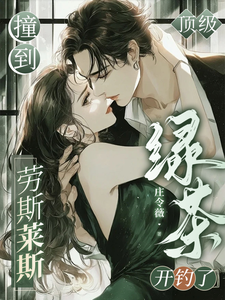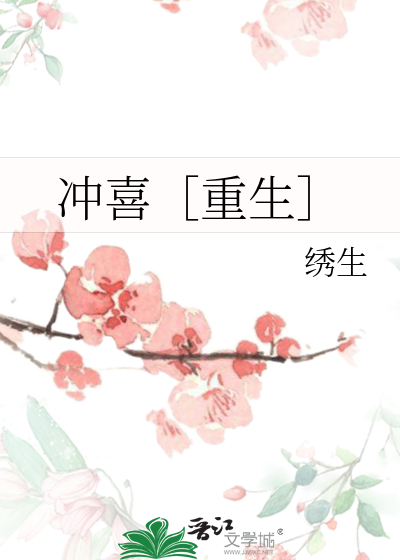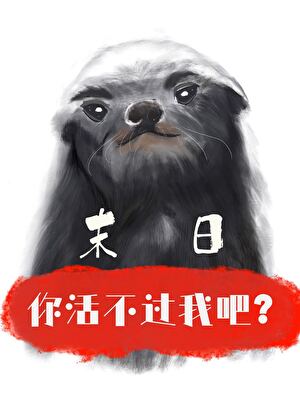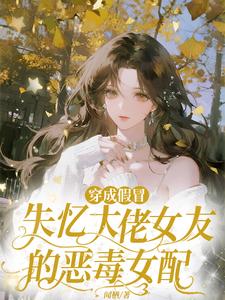【Crown Prince】
Chu Heng is my absolute favorite “white moonlight” character—though he never became the ruthless, decisive ruler the world expected, he remains in my heart the purest Crown Prince. He dedicates himself to the people’s well-being with an unwavering sincerity. Knowing that His Highness is firmly protected is truly a comfort.
The vast land of a hundred million miles couldn’t possibly hold someone as good as him, yet there are still many who wish to protect His Highness—like the Crown Princess, Jin Cheng, Zong Zhao, the military commander, and even you and me beyond the screen.
At the very beginning, the Crown Prince’s ending in my outline was like many tragic white moonlight stories—his death was the ultimate heartbreak.
He was supposed to die the year Jin Cheng turned ten.
When Chengcheng was eight, the Crown Prince began teaching him the art of rulership. Just after the dance house incident was resolved, the Crown Prince’s poisoning worsened, and he realized his days were numbered. Yet, with the Luo family still posing a threat to the court and the people, he couldn’t rest in peace. Anxiously, he hurried to impart the knowledge of governance to Chengcheng, frequently taking him to the Ministry of Justice, the Ministry of Personnel, and the Ministry of Revenue.
But in truth, none of this was in my original outline.
My main storyline focused on Chengcheng and his classmates happily studying, living their daily lives, raising children, and preparing for the imperial exams—there was never any plan for the Crown Prince to personally tutor him.
It was His Highness’s stubborn insistence that made this happen.
The Crown Prince’s urgency affected my mood at the time, leading me to cut out a debate tournament between the children and several lighthearted parenting chapters, roughly six or seven chapters in total.
Because of the changes in the Crown Prince’s storyline, a series of butterfly effects followed. His selflessness and great love deepened the loyalty of those who followed him, to the point where Zong Zhao was willing to risk his life to save him.
In the end, his death was rewritten by himself.
One night, I suddenly woke up.
My limbs tingled, and a chill ran through my heart.
—It was then I realized that I, the creator, had been influenced by a character in my own book.
It was a strange and terrifying experience. Before, the worst I’d faced was losing control over a single character’s actions.
But this time, the Crown Prince’s urgency affected my entire being, steering the whole direction of my novel. It scared me so much I couldn’t recover for days.
The Crown Prince’s influence peaked when Zong Zhao and Luo Jingfeng returned. As the author, I bore the weight of all the pain and hatred each character carried—it felt like their heavy burdens rested squarely on my shoulders.
During that period, I suffered frequent nightmares. Writing felt like my soul was being torn away and then pieced back together after I finished each chapter.
Even now, I still can’t fully understand it. I find myself wondering: Could parallel universes really exist? Could the characters in my book be living elsewhere, truly alive? Could they remotely influence their creator to change their fate?
【Luo Jingfeng】
I envisioned him as someone who loves so fiercely he wants life for the beloved but death for the hated. His love for Chengcheng is genuine, as is his ruthless dictatorship.
Before writing him, I knew he would be a highly controversial character. I even worried I wouldn’t be able to handle the contentious plotlines and left hints in advance to prepare readers for this.
But in the end, the conclusion I wrote was different from my initial expectation of a “love-hate split” among readers.
It’s because: someone, at some unknown point, suddenly became a fan of Luo Jingfeng. Every time I tried to write more ruthless and intense plotlines, this fan would drag me offline and “arrest” me.
Me: “???”
- Have you ever experienced someone holding your head down while chopping up your storyline?
- Have you ever been confronted face-to-face by a fan asking, “What’s the point of writing it this way?”
— I have (҂꒦ິヮ꒦ິ)
So, I did some serious self-reflection: Why did I insist on writing such a morally ambiguous character?
Later, I realized: it probably didn’t make much sense after all.
……
The author, who kept having their head held down, started to dig deeper into Luo Jingfeng’s character. Considering his personality and experiences, although he could be dictatorial and ruthless, there should be reasons and traces behind his actions—not cruelty for the sake of cruelty.
So, later on, I ended up writing a lot of extras about him, digging so deep that I almost couldn’t stop. Although the final feedback from readers wasn’t quite the balanced portrayal I initially intended, I discovered a deeper charm in this character.
I think this counts as a special kind of experiment.
The exciting thing is: although I still don’t know what story I’ll write next, the first character for it has already begun to take shape—another conflicted yet compelling figure.
**Zong Yan**
When I first outlined the story, the overarching revenge plot led by Zong Zhao was set in stone, so Zong Yan had to die. On the premise that he was destined to die, I worried that if his character was too likable, it would make readers too sad. So I debated whether to fully develop his endearing side or just gloss over him as a minor character.
I hesitated for a long time because I used to write that way—skimming over parts to keep the story light and sweet.
But with Zong Yan, I made a change. I thought: if I erase a character’s completeness just because I’m afraid readers will be too upset, is that fair to Zong Yan?
With that in mind, I decided to tell his story as fully as possible.
Every time I worked on his character outline, thinking about Zong Yan dying to save his brother made me want to cry; every time Zong Zhao remembered Zong Yan before his revenge, I wanted to cry too; every time Zong Yan appeared in flashbacks, I wanted to cry.
I even started regretting why I chose to write a rebirth and revenge story—because revenge isn’t just satisfying, it’s filled with endless pain and hatred.
Thankfully, readers pulled me out of that struggle. Since Zong Yan first appeared in Yan Suxue’s memories, many readers begged me to find a way to bring him back to life.
That opened a new path for me. Without changing the main storyline, I started thinking about how to resurrect Zong Yan.
It’s tough to justify the revival of a character who, according to the original outline, had no chance of survival. I spent half a year brainstorming, scrapping seven or eight different ideas before settling on the current version.
This version might still have flaws, but I gave it my all.
So here’s a shout-out: Zong Yan was brought back to life solely because of the readers who followed the serialization—there’s no other reason.
**Xu Wan**
I wrote three books in a row on Tomato Literature featuring realistic, non-strong-female leads with micro ensemble casts. Among them, Xu Wan received the fewest complaints. I’m relieved—I guess I’ve improved (maybe?).
Although Xu Wan is excellent at teaching children, she is like an employee in the workplace—she has her strengths and weaknesses. Only when a leader places her in the right position can she successfully lead a top-tier class; otherwise, she would suffer a crushing defeat in the domestic power struggles.
The author herself is a corporate drone, worn out by overachieving colleagues in a startup. Workdays are busy, exhausting, and competitive. After hours, she doesn’t want to write a heroine who excels at everything, because that would feel like just switching from one exhausting grind to another. Honestly, it’s too tiring to immerse herself in that.
So even when it comes to educating children, Xu Wan doesn’t take on everything alone. Instead, she delegates the right tasks to the right people—hiring scholars who passed the imperial exams, inviting Mr. Baili, summoning officials from the court, and bringing in Zong Zhao to teach. She maximizes all available resources and firmly refuses to follow the “I work myself to death so a thousand families can be happy” approach.
For example, in the early stages of disciplining the little troublemaker, Wenxiu mostly took charge. I know having the heroine personally discipline the little troublemaker would make her seem like a “strong female lead,” because all the spotlight would be on her. But I think this is more realistic, since at that time, Jin Cheng and Xu Wan were still at odds. Advice from an enemy is simply not something you can accept.
To me, Xu Wan is the kind of principal who knows how to use people—not a teacher who insists on doing everything herself. Even though she’s the heroine, characters like the Crown Prince, the little troublemaker, and Luo Jingfeng all have their own moments to shine, their own flaws. Imperfection is exactly what I want to portray to give these characters a sense of realism.
I want the supporting characters in my story to be more than just NPCs serving the main plot—they are protagonists of their own worlds.
Later on, when Xu Wan’s mother (in chapter 179) commits suicide after being pressured by a prostitute to give up her position, readers who don’t know the backstory might just feel moved by her lack of maternal love. But I, knowing her past and understanding the struggles and pain she endured in the Guogong Mansion, couldn’t stop crying. I spent an hour trying to write that scene but couldn’t get it right—I just felt so heartbroken for Sister Xu.
But since her character is already established, she has her own independent storyline. I can’t erase her hardships just to spare her from suffering.
It’s... sigh, heartbreaking. Luckily, in this lifetime, Sister Xu is well-off, with no worries about money, surrounded by family, love, and friendship. She will live well and happily in another time and space.
【Zong Zhao】
Before I had finalized all the character names, and even before I knew which “Zhao” to choose, the sound of these two characters was already echoing in my mind—it told me this should be his name.
So I followed this strange obsession and searched through characters pronounced “zhao” in the input method. Initially, I liked “照” (Zhao), but after some thought, I felt its meaning was too shallow. Then I came across “肇” (Zhao).
I had only seen this character before in “肇事者” (the person who causes an accident). That day, on a whim, I looked up the meaning of this character and was surprised to learn it means “beginning” or “to initiate”: “to start, to trigger; something beautiful, yet easily misunderstood, but still steadfastly upheld.”
This story is triggered by Zong Zhao’s rebirth; before he appears, he is disliked by everyone and seen as a bad match; after he appears, he is misunderstood and schemes against Xu Wan and Jin Cheng; yet he remains steadfast until the truth comes to light.
Zhao, Zong Zhao.
That’s his name. That’s his character.
A perfect fit.
Since it was decided from the very beginning that Zong Zhao would appear in the second half of the book, I was torn between my eagerness to have him show up and my desire not to disrupt the overall rhythm of the story. So whenever I had the energy, I added extra chapters, determined not to let him appear prematurely.
——Because the warm, everyday moments in the first half of the book are essentially Zong Zhao’s secret love letter to Xu Wan, I didn’t want to rush through them.
Later on, readers grew accustomed to the mother-and-child storyline, and many didn’t want the male lead to return. Honestly, if Zong Zhao’s character had been cut at that point, the story wouldn’t have felt out of place.
A love that no one ever glimpsed—just as if it had never existed—everyone assumed it was simply the heroine’s good fortune.
But I thought… how could I possibly erase him?
Everything Zong Zhao did deserves to be seen. Even if he never wanted to tell Xu Wan, I owe it to the readers to reveal it, to introduce him to everyone: Look, there was once such a good person in this world, someone who stood quietly behind Xu Wan all along.
Xu Wan was never fighting alone.
—Zong Jincheng







